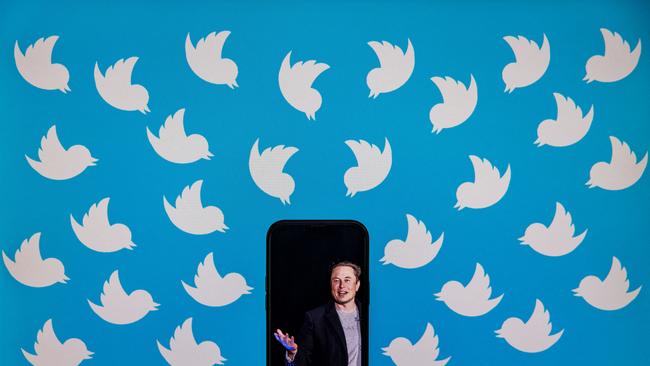Elon Musk bans New York Times, CNN, MSNBC journalists from Twitter
The reporters, from the New York Times, CNN and more, had been tweeting about the billionaire’s private jet.

Twitter chief executive Elon Musk has banned several prominent journalists critical of him without warning, with technology reporters from the New York Times, CNN, MSNBC, the Washington Post and more kicked off Twitter on Friday.
The accounts were seemingly banned after Mr Musk took issue with an account, @ElonJet, which had been sharing the whereabouts of his private jet. The suspended reporters had each tweeted about Mr Musk‘s attempts to crackdown on the account, run by owner Jack Sweeney, which had tracked the locations of private jets using publicly accessible data.
Twitter’s head of trust and safety Ella Irwin said in an email to technology news publication The Verge that Twitter had changed its policy to prohibit the sharing of “live location information, including information shared on Twitter directly or links to 3rd-party URL(s) of travel routes.”
“Without commenting on any specific accounts, I can confirm that we will suspend any accounts that violate our privacy policies and put other users at risk,” Ms Irwin said in the email.
“We don’t make exceptions to this policy for journalists or any other accounts.”
The bans raise questions about Mr Musk‘s commitment to free speech. The executive, who on Thursday lost the title of world’s richest man, had previously promised to make Twitter a ’town square’ dedicated to free speech, and had begun unblocking accounts associated with far-right movements including the QAnon movement.
“I hope that even my worst critics remain on Twitter, because that is what free speech means,” he wrote in an April tweet.
I hope that even my worst critics remain on Twitter, because that is what free speech means
— Elon Musk (@elonmusk) April 25, 2022
The banned accounts include The New York Times reporter Ryan Mac, CNN’s Donie O’Sullivan, The Washington Post’s Drew Harwell, Tony Webster, Keith Olbermann, The Intercept’s Micha Lee, Mashable’s Matt Binder, and Aaron Rupar.
Mr Rupar wrote in a blog post that he did not know why his account had been deactivated, although he said he had tweeted a link to a Facebook page that tracked Mr Musk’s jet.
“I have no idea what rules I purportedly broke. I haven‘t heard anything from Twitter at all,” Mr Rupar said in a blog post.
“I did publish a newsletter Wednesday morning featuring an article from Noah Berlatsky about Elon Musk’s reactionary populism. I also posted a tweet late last night noting that Musk seemed to violate Twitter’s policy against posting footage of someone without their consent in a tweet he posted yesterday.
“But it’s hard to imagine how either of those things violated Twitter’s policies.”
Mr Mac, a reporter from the New York Times, wrote that he was given “no warning” before his account was suspended, but that the ban would not change his job, which includes reporting on Twitter, Elon Musk and his companies.
“Tonight’s suspension of the Twitter accounts of a number of prominent journalists, including the New York Times’s Ryan Mac, is questionable and unfortunate,” Charlie Stadtlander, a spokesman for the New York Times, said in a statement.
“Neither the Times nor Ryan have received any explanation about why this occurred. We hope that all of the journalists’ accounts are reinstated and that Twitter provides a satisfying explanation for this action.”
Some folks have asked so will try to answer here:
— Silenced Ryan Mac (@MacSilenced) December 16, 2022
-This is the notification on my account.
-I was given no warning.
-I have no email or communication from the company about the reason for suspension.
-I report on Twitter, Elon Musk and his companies. And I will continue to do so. pic.twitter.com/Fz14nStH7U
Statement from @washingtonpost Executive Editor Sally Buzbee pic.twitter.com/YmsG83iHA5
— Washington Post PR (@WashPostPR) December 16, 2022
Statement on tonight's suspension of CNN's @donie O'Sullivan: pic.twitter.com/TQGsysxvpf
— CNN Communications (@CNNPR) December 16, 2022
Mr Musk weighed in on the suspensions in a tweet, describing them as intentional.
“Same doxxing rules apply to “journalists” as to everyone else,” he tweeted in a reply, referring to the publishing of identifying information about a particular individual on the internet, often with malicious intent.
Same doxxing rules apply to “journalists†as to everyone else
— Elon Musk (@elonmusk) December 16, 2022
Twitter has not only shut down the @ElonJet account but also the official account for emerging rival social media service Mastodon, which had encouraged people to follow @ElonJet in a tweet.
The company recently fired most of its press department and did not immediately respond to a request for comment.



To join the conversation, please log in. Don't have an account? Register
Join the conversation, you are commenting as Logout